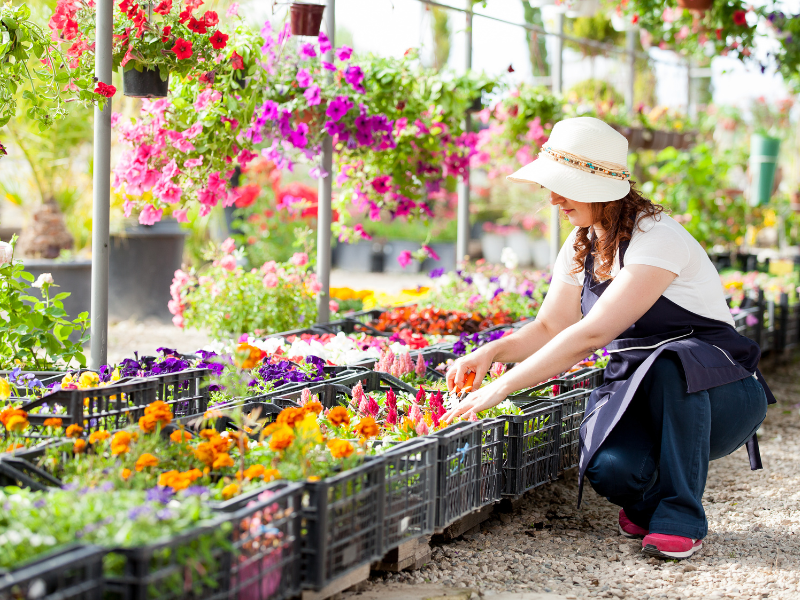
Introduction
In the bustling concrete jungles of today’s cities, amidst the towering skyscrapers and bustling streets, an unexpected hero emerges—the professional florist. These individuals possess a unique skill set that not only beautifies urban spaces but also plays a crucial role in the pollination of our city’s plants. In this article, we delve into the importance of education for professional florists through the eyes of a biologist specializing in the function of decorative flowers in urban pollination. By exploring various facets of their perspective, from thematic coordination to customer experience, we gain insight into how education elevates the florist profession, benefiting not only budding entrepreneurs but also the urban ecosystems they serve.
The Florist’s Role in Urban Pollination
Unearthing Nature in the Cityscape
Our biologist-professor begins by shedding light on the often-overlooked role of decorative flowers in urban ecosystems. They explain how flowers used by professional florists serve as vital resources for pollinators, contributing to the sustainability of urban greenery.
A Mutualistic Dance
The biologist emphasizes the symbiotic relationship between professional florists and urban pollinators. Florists’ work in curating diverse floral arrangements directly impacts the diversity and abundance of pollinators in the city. This perspective showcases the interconnectedness of seemingly unrelated professions.
Education as a Catalyst for Change
Elevating the Florist’s Craft
Education, our biologist argues, is the driving force behind the transformation of floristry into a respected profession. They discuss how comprehensive training equips florists with the knowledge and skills needed to select and arrange flowers in a manner that maximizes their role in pollination.
The Evolution of Florist Education
The biologist traces the evolution of florist education, from traditional apprenticeships to modern, specialized courses. They highlight how contemporary education empowers florists to not only create stunning arrangements but also contribute to the health of urban ecosystems.
Thematic Coordination for Urban Aesthetics and Ecology
Blooming Aesthetics and Ecological Functionality
Our expert delves into the significance of thematic coordination in floristry. They illustrate how florists, educated in the art of thematic design, can enhance both the aesthetic appeal of urban spaces and the ecological functionality of floral arrangements.
Green Hues and Urban Hymns
The biologist shares insights into the color schemes used by professional florists. They explain how a well-coordinated color palette not only pleases the eye but also attracts specific pollinators, contributing to urban biodiversity.
Budget Management for Sustainable Floristry
Cultivating Sustainable Practices
In this section, our biologist discusses the importance of budget management in floristry education. They highlight how education equips florists with the skills to source sustainable materials, reducing the ecological footprint of the industry.
Cost-Effective Eco-Friendly Solutions
Through real-world examples, the biologist showcases how educated florists can create stunning arrangements without compromising on sustainability. They emphasize that budget management, when coupled with ecological awareness, leads to innovative solutions.
Timing Synchronization: A Dance with Nature
Orchestrating Blooms in Time
Timing is crucial in the world of floristry. Our biologist explains how educated florists understand the flowering seasons of various plants, ensuring that their arrangements align with nature’s schedule for optimal pollinator attraction.
City-Wide Pollinator Parties
The biologist narrates stories of urban gardens bursting into vibrant blooms, thanks to the synchronized efforts of educated florists. These gardens become hubs of pollinator activity, contributing to the overall health of urban ecosystems.
Crafting Experiences Beyond Flowers
The Sensorial Journey
Education, our biologist argues, extends beyond blooms and bouquets. They discuss how educated florists create multisensory experiences for clients, immersing them in a world of fragrance, texture, and ambiance.
Personalization that Resonates
The biologist emphasizes the personal touch that educated florists bring to their work. They share examples of florists who incorporate client stories into arrangements, fostering a deep emotional connection.
Realizing Success in Urban Floristry
From Students to Urban Stewards
To exemplify the impact of education, the biologist presents case studies of florists who, post-education, have become stewards of urban greenery. These professionals embody the transformative power of comprehensive training.
Urban Eden Testimonials
Client testimonials serve as evidence of the positive impact educated florists have on urban aesthetics and ecology. These heartwarming stories reflect how floristry education elevates the experience for both florists and their clients.
Conclusion
In conclusion, the importance of education for professional florists transcends the art of floral arrangement. It extends into the realm of urban ecosystems, where florists play an unwitting yet vital role in sustaining biodiversity. Through education, florists not only refine their craft but also become custodians of nature in the city. As the urban landscape continues to evolve, it is the educated florists who will ensure that the beauty of decorative flowers goes hand in hand with ecological responsibility, creating a harmonious and thriving urban ecosystem for generations to come.